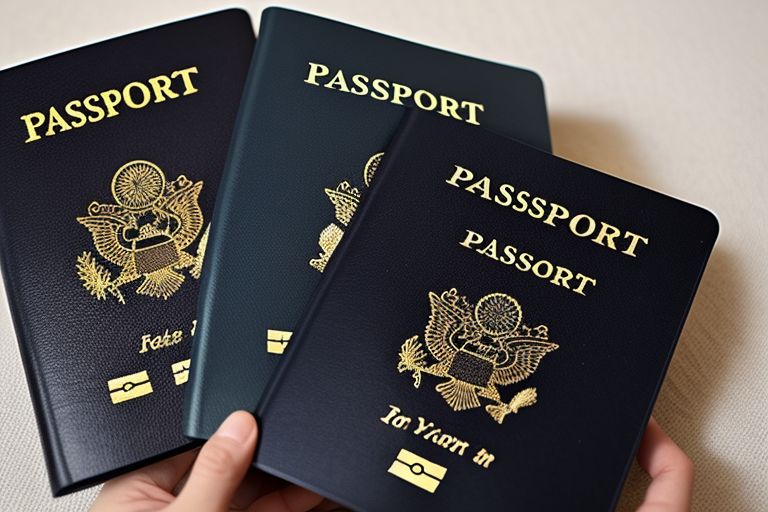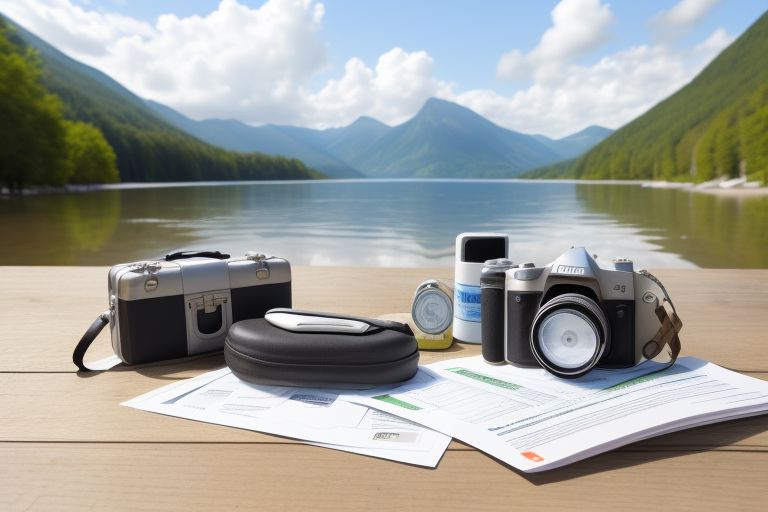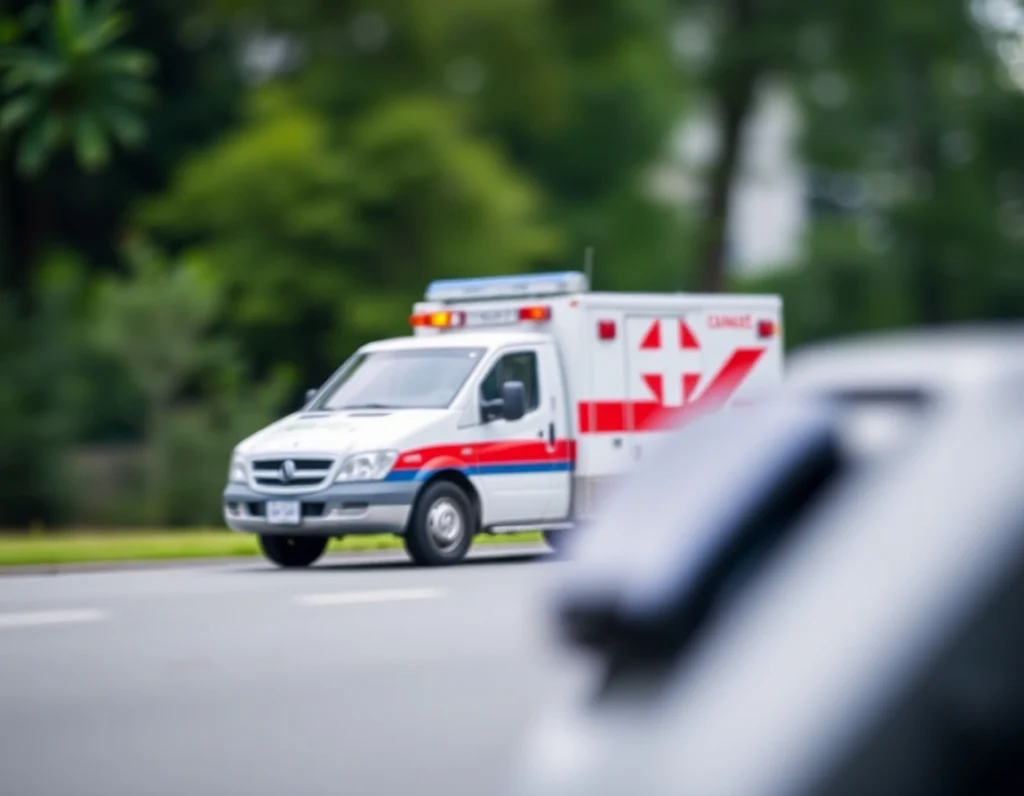
travel recommendations for us citizens Embark on a journey of discovery and adventure with “Essential Steps for Safe and Enjoyable International Travel: A Comprehensive Guide.” This meticulously crafted guide is your trusted companion, offering invaluable insights and practical tips to ensure a smooth and memorable travel experience. From understanding travel advisories and registering with the Smart Traveler Enrollment Program (STEP) to managing finances, health, and cultural etiquette, this guide covers all aspects of international travel preparation. Whether you’re a seasoned traveler or embarking on your first adventure abroad, let this guide be your roadmap to safe, enriching, and unforgettable travels around the globe.
Table of Contents
Travel Advisory and Alerts

Before embarking on any international journey, it’s crucial for US citizens to stay informed about the current travel advisory for their destination. This information helps travelers make informed decisions and prepares them for potential risks they may encounter abroad. Here’s why checking the travel advisory and registering with the Smart Traveler Enrollment Program (STEP) are essential steps in travel planning.
A. Check the Current Travel Advisory for Your Destination
It’s imperative for US citizens to research and understand the current travel advisory issued by the U.S. Department of State for their intended destination. The travel advisory system categorizes countries into different levels based on safety and security conditions, ranging from Level 1 (Exercise Normal Precautions) to Level 4 (Do Not Travel). By checking the travel advisory, travelers can assess potential risks associated with their destination, such as crime, terrorism, civil unrest, natural disasters, and health concerns.
Additionally, the travel advisory provides valuable information on specific regions within a country that may have heightened risks, as well as any temporary travel restrictions or advisories issued by the U.S. government. Travelers should review the advisory regularly leading up to their trip, as conditions may change over time.
Armed with this knowledge, travelers can take proactive measures to mitigate risks, adjust their travel plans if necessary, and make informed decisions to ensure their safety and well-being while abroad.
B. Register Your Travel Plans with the Smart Traveler Enrollment Program (STEP)
The Smart Traveler Enrollment Program (STEP) is a free service provided by the U.S. Department of State that allows U.S. citizens and nationals traveling abroad to register their trip with the nearest U.S. embassy or consulate. By registering with STEP, travelers provide valuable information about their itinerary, including their destination, dates of travel, and contact details.
Registering with STEP enables the U.S. government to communicate with travelers in case of an emergency, such as a natural disaster, civil unrest, or family emergency back home. It also allows the embassy or consulate to provide timely updates on safety and security conditions in the destination country and facilitate assistance if needed.
Additionally, STEP registration enables the U.S. government to locate and assist travelers in case of an emergency, such as evacuations due to natural disasters or political unrest. This service is particularly crucial for travelers visiting countries with limited infrastructure or volatile political situations.
In conclusion, checking the travel advisory and registering with STEP are essential steps for US citizens planning international travel. These measures empower travelers to make informed decisions, stay connected with the U.S. government, and receive assistance in case of emergencies while abroad. By taking these proactive steps, travelers can enhance their safety and peace of mind during their journey.
Passport and Visa

The “Passport and Visa” section of the comprehensive guide “Essential Steps for Safe and Enjoyable International Travel” is a critical resource for travelers preparing to embark on journeys abroad. This section offers a detailed breakdown of the essential steps and considerations concerning passports and visa requirements.
A. Ensure Your Passport is Valid
Before traveling, check the expiration date on your passport. Many countries require that your passport be valid for at least six months beyond your planned stay. Renew your passport if necessary to avoid any issues at immigration checkpoints.
B. Check Visa Requirements
Research the visa requirements for your destination country well in advance of your trip. Some countries require US citizens to obtain a visa before arrival, while others allow for visa-free entry or issue visas upon arrival. Make sure to apply for your visa in a timely manner to avoid any last-minute complications.
Additionally, some countries may have specific visa requirements based on the purpose of your visit (e.g., tourism, business, study). Make sure to select the appropriate visa category when applying.
C. Consider an International Driving Permit (IDP)
If you plan to drive during your travels, especially in countries where English is not widely spoken, consider obtaining an International Driving Permit (IDP). An IDP serves as a translation of your US driver’s license into several languages, making it easier for you to communicate with local authorities in the event of a traffic stop or accident.
Keep in mind that an IDP is not a standalone document and must be accompanied by your valid US driver’s license. Check the specific requirements of your destination country regarding driving permits for foreign visitors.
In conclusion, ensuring that your passport is valid, understanding the visa requirements for your destination, and considering an International Driving Permit if you plan to drive will help you avoid potential travel disruptions and enjoy a smoother travel experience.
Health and Safety
The “Health and Safety” section of the comprehensive travel guide, “Essential Steps for Safe and Enjoyable International Travel,” serves as a comprehensive resource for travelers seeking to prioritize their well-being while exploring new destinations. This section offers invaluable insights and practical tips to ensure travelers can maintain good health and mitigate potential risks during their journeys.
A. Get Vaccinated
Before traveling, check if there are any recommended or required vaccinations for your destination. Visit a healthcare provider or travel clinic to receive any necessary vaccinations well in advance of your trip. Some countries may require proof of certain vaccinations for entry.
B. Carry Necessary Medications
If you take prescription medications, ensure you have an adequate supply for the duration of your trip. Carry medications in their original packaging, along with a copy of your prescriptions. This can be helpful if you need to refill your prescription while abroad or if you encounter any issues with customs.
Additionally, consider carrying a basic first-aid kit with essentials such as bandages, antiseptic wipes, and pain relievers for minor injuries or illnesses.
C. Familiarize Yourself with Local Laws and Customs
Before traveling, research the local laws and customs of your destination. Familiarize yourself with any cultural norms, dress codes, and behavior expectations to avoid unintentionally offending locals or breaking the law.
Pay particular attention to laws regarding alcohol, drugs, and photography, as these can vary widely between countries. Being aware of local laws and customs can help you stay safe and avoid legal issues while abroad.
In conclusion, taking steps to protect your health, carrying necessary medications, and being aware of local laws and customs can help ensure a safe and enjoyable travel experience.
Travel Insurance

The “Travel Insurance section within the comprehensive travel guide, “Essential Steps for Safe and Enjoyable International Travel,” is a vital resource aimed at safeguarding travelers against unforeseen circumstances and providing peace of mind during their journeys. This section emphasizes the importance of considering and purchasing travel insurance to mitigate financial risks and receive assistance in emergencies.
A. Consider Purchasing Travel Insurance
Travel insurance can offer coverage for a variety of situations, including medical emergencies, trip cancellations, and delays. It can also provide coverage for lost or stolen luggage, emergency medical evacuation, and trip interruption.
Before purchasing travel insurance, carefully review the policy to understand what is covered and any exclusions or limitations. Consider factors such as your destination, length of travel, and planned activities when selecting a policy.
Travel insurance can provide peace of mind knowing that you’re protected against unexpected expenses or disruptions to your trip. It’s especially important when traveling to destinations where healthcare costs are high or medical facilities may be limited.
In conclusion, purchasing travel insurance can help protect you against financial losses and provide assistance in case of emergencies while traveling.
Money Matters
In the “Money Matters” section of the comprehensive travel guide, “Essential Steps for Safe and Enjoyable International Travel,” travelers are equipped with essential tips and strategies to manage their finances effectively while abroad. This section focuses on ensuring a seamless and worry-free travel experience by addressing key aspects such as notifying financial institutions, currency exchange, and utilizing travel cards.
A. Notify Your Bank
Before traveling, notify your bank and credit card companies of your travel plans. This helps prevent your cards from being flagged for suspicious activity when used in a different location. Provide them with your travel dates and destinations to avoid any disruptions in accessing your funds.
B. Carry Local Currency or a Travel Card
It’s a good idea to carry some local currency for small purchases and situations where cards may not be accepted. Consider exchanging currency before your trip or using ATMs upon arrival to withdraw local currency.
Alternatively, you can use a travel card, such as a prepaid travel card or a debit/credit card that offers favorable foreign exchange rates. These cards can be a convenient and secure way to manage your finances while traveling.
By planning ahead and managing your money wisely, you can avoid unnecessary stress and enjoy your travels to the fullest.
Communication
The Communication section of the comprehensive travel guide, “Essential Steps for Safe and Enjoyable International Travel,” provides travelers with valuable insights on staying connected while abroad. This section emphasizes the importance of effective communication for safety, convenience, and keeping in touch with loved ones back home.
A. Check Your Mobile Phone Plan
Before traveling, check with your mobile phone provider to see if your plan includes international coverage. This can help you avoid expensive roaming charges for calls, texts, and data usage while abroad. Consider upgrading to an international plan if needed, or explore other options such as temporary international roaming packages.
B. Consider Purchasing a Local SIM Card
Purchasing a local SIM card can be a cost-effective way to stay connected while abroad. Local SIM cards typically offer cheaper rates for calls, texts, and data compared to international roaming. You’ll need an unlocked phone to use a local SIM card, so make sure your phone is compatible before purchasing one.
Another option is to use messaging apps that offer free or low-cost international calling and messaging over Wi-Fi or data, such as WhatsApp, Skype, or Viber. This can be a convenient and budget-friendly way to stay in touch with family and friends back home.
By planning ahead and exploring your communication options, you can stay connected while traveling without breaking the bank.
Transportation travel recommendations for us citizens
The Transportation” section of the comprehensive travel guide, “Essential Steps for Safe and Enjoyable International Travel, offers essential guidance on navigating efficiently and safely in foreign destinations. This section equips travelers with valuable information on various transportation options available at their destination, ensuring a smooth and convenient travel experience.
A. Research Transportation Options
Before you arrive, research the transportation options available at your destination. This includes public transportation, such as buses, trains, and subways, as well as private options like rental cars or ridesharing services.
Consider factors such as cost, convenience, and safety when choosing your transportation. Public transportation is often a budget-friendly option, while rental cars provide more flexibility and convenience for exploring remote areas. Ridesharing services can offer a balance between convenience and cost.
B. Familiarize Yourself with Local Traffic Laws
If you plan to drive during your trip, familiarize yourself with the local traffic laws and driving customs of your destination. This includes understanding the rules of the road, speed limits, and parking regulations.
Consider obtaining an International Driving Permit (IDP) if required or recommended for driving in your destination country. An IDP serves as a translation of your US driver’s license and can be useful in communicating with local authorities.
By researching transportation options and understanding local traffic laws, you can navigate your destination safely and efficiently during your travels.
Cultural Etiquette
The Cultural Etiquette section of the comprehensive travel guide, “Essential Steps for Safe and Enjoyable International Travel,” provides valuable insights on respecting and embracing the customs and traditions of diverse cultures. Understanding and adhering to cultural etiquette is essential for travelers to make meaningful connections, show respect, and avoid unintentionally causing offense while visiting new destinations.
A. Learn Basic Phrases
Learning basic phrases in the local language can go a long way in showing respect for the local culture. Even if you’re not fluent, knowing how to greet people, say please and thank you, and ask for directions can help you communicate and connect with locals.
Consider carrying a phrasebook or using language learning apps to practice key phrases before your trip. Locals appreciate the effort to speak their language, even if it’s just a few words.
B. Respect Local Customs and Traditions
Every culture has its own customs and traditions, so it’s important to be aware of and respect them while traveling. This includes following dress codes, especially when visiting religious sites or attending cultural events.
Researching the local customs and traditions before your trip can help you avoid unintentionally offending locals. For example, in some cultures, it’s customary to remove your shoes before entering someone’s home, while in others, it’s polite to bring a small gift when visiting someone’s house.
By learning about and respecting the local customs and traditions, you can show appreciation for the local culture and make a positive impression on the people you meet during your travels.
Emergency Contacts

The Emergency Contacts section of the comprehensive travel guide, “Essential Steps for Safe and Enjoyable International Travel,” emphasizes the importance of preparedness and quick access to essential contacts during travel. Being equipped with the right information and resources can ensure prompt assistance and peace of mind in case of unforeseen emergencies.
A. Keep a List of Emergency Contacts
It’s important to have a list of emergency contacts easily accessible while traveling. This should include local emergency numbers for police, ambulance, and fire services, as well as the contact information for the nearest U.S. embassy or consulate.
You can also include contact information for your travel companions, family members back home, and your travel insurance provider. Keep this list in a safe place, such as your phone, a travel wallet, or a notebook, so you can quickly access it in case of an emergency.
Knowing who to contact in an emergency can help you get the assistance you need quickly and efficiently, ensuring your safety and well-being while traveling.
| Section | Description |
| Travel Advisory and Alerts | Provides insights on checking current travel advisories, understanding risks, and registering with the Smart Traveler Enrollment Program (STEP). |
| Passport and Visa | Covers the importance of a valid passport, researching visa requirements, and considering an International Driving Permit (IDP) if driving abroad. |
| Health and Safety | Offers guidance on getting vaccinated, carrying necessary medications, and understanding local laws and customs for a safe and healthy travel experience. |
| Travel Insurance | Emphasizes the significance of purchasing travel insurance, its coverage, and protection against financial losses and emergencies. |
| Money Matters | Advises on notifying financial institutions, carrying local currency or travel cards, and managing finances effectively during international travel. |
| Communication | Provides tips on checking mobile phone plans, using local SIM cards, and staying connected with family and friends while abroad. |
| Transportation | Offers information on researching transportation options, understanding local traffic laws, and obtaining an International Driving Permit (IDP) if needed. |
| Cultural Etiquette | Discusses learning basic phrases, respecting local customs, and embracing cultural traditions to make meaningful connections during travels. |
| Emergency Contacts | Emphasizes the importance of keeping a list of emergency contacts for quick access to local emergency services, embassies, and travel companions. |
Embarking on an international journey is an exciting adventure filled with new experiences, discoveries, and memories that last a lifetime. “Essential Steps for Safe and Enjoyable International Travel: A Comprehensive Guide” serves as your indispensable companion, offering a wealth of insights and practical tips to ensure a smooth, safe, and enriching travel experience.
FAQs:
Q1: Why is it important to check the travel advisory for your destination? A1: Checking the travel advisory provides crucial information on safety and security conditions in your destination country. It helps you assess potential risks such as crime, terrorism, natural disasters, and health concerns, enabling you to make informed decisions and take proactive measures for a safe journey.
Q2: What is the Smart Traveler Enrollment Program (STEP), and why should I register? A2: STEP is a free service provided by the U.S. Department of State for U.S. citizens traveling abroad. By registering with STEP, you provide your travel itinerary and contact details to the nearest U.S. embassy or consulate. This allows the government to communicate with you in emergencies, provide updates on safety conditions, and offer assistance if needed.
Q3: How can I ensure my passport and visa are in order for international travel? A3: Ensure your passport is valid for at least six months beyond your planned stay, and research the visa requirements for your destination well in advance. Some countries require visas, while others may offer visa-free entry or visas upon arrival. Additionally, consider obtaining an International Driving Permit (IDP) if you plan to drive.
Q4: What steps should I take to protect my health while traveling internationally? A4: Before traveling, check for recommended or required vaccinations for your destination. Carry an adequate supply of prescription medications, along with copies of your prescriptions. Familiarize yourself with local laws and customs, and take precautions to stay healthy and safe during your journey.
Q5: Why is travel insurance important, and what does it cover? A5: Travel insurance provides coverage for various situations such as medical emergencies, trip cancellations, lost luggage, and more. It offers financial protection and assistance in emergencies, giving you peace of mind while traveling. Review policy details carefully to understand coverage and exclusions.
Q6: How can I manage my finances effectively while traveling abroad? A6: Notify your bank of your travel plans to avoid card disruptions, and consider carrying local currency or using travel cards with favorable exchange rates. Plan ahead for communication costs, such as international roaming or purchasing a local SIM card, to stay connected without overspending.
Q7: What should I know about transportation options in my destination country? A7: Research public transportation, rental cars, or ridesharing services available at your destination. Consider factors such as cost, convenience, and safety when choosing transportation. Familiarize yourself with local traffic laws if driving, and obtain an International Driving Permit if required.
Q8: How can I show respect for the local culture and customs while traveling? A8: Learn basic phrases in the local language, observe dress codes, and respect cultural norms and traditions. Research local customs before your trip to avoid unintentional offense. By embracing cultural differences, you can create positive interactions and memorable experiences.
Q9: What should I do in case of an emergency while traveling abroad? A9: Keep a list of emergency contacts, including local police, ambulance, and the nearest U.S. embassy or consulate. Also include contacts for travel companions, family back home, and your travel insurance provider. In case of an emergency, refer to this list for prompt assistance and support.
Q10: How can I make the most of my international travel experience? A10: Embrace the journey with an open mind and a spirit of curiosity. Engage with locals, try new foods, explore historical sites, and immerse yourself in the culture. Travel with respect, awareness, and a sense of adventure to create unforgettable memories and enriching experiences.

